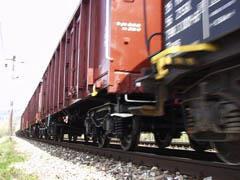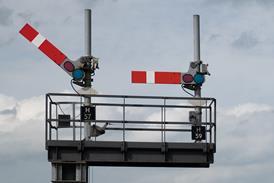
Dr Átal László, CEO of MÁV Cargo, outlined the challenge of getting regional merger projects approved by the European Commission, citing the sale of his own company to a joint venture of GySEV and Rail Cargo Austria (RG 1.08 p9). The sale agreement was concluded in January, but at the time of writing a provisional decision on whether the deal could go through was not expected from DG Competition until November 25. 'We don't think Brussels will reject the privatisation outright, but some substantial changes to the sale are likely to be required', László said, adding that in theory the Commission could delay a final verdict until February 2009.
The saga suggests there may be implications for similar deals, such as the proposed alliance between the Czech and Slovak incumbent freight operators and the long-planned sale of CFR Marfa in Romania. 'If you launch a privatisation process involving already-dominant regional players, then the competition authorities will take a particular interest,' László warned. This is likely to frustrate operators and politicians across central and eastern Europe, who view the rail freight business as a vital source of revenue and see the principal competitive threat coming not from other rail operators, but from road haulage - a point emphasised by several speakers.
Amid much discussion of the impact of the global financial crisis, operators expressed a desire for an end to the constraints of the annual government budget settlement.
Matej Augustin, Director-General of ZSSK Cargo, was forthright in his view that national governments held the key to maximising the benefits of the European reform programme - particularly in pushing infrastructure managers towards 'a more liberalised position'. Co-operation across the region would be key to maintaining rail's market share, and he was adamant that further European legislation would be counter-productive. 'We do not feel that liberalisation has as yet brought anything new', he argued. 'Natural monopolies will continue to exist purely because of macroeconomics,' he said, noting that the key to a successful rail freight business is economy of scale.
With the looming recession posing a severe threat to ZSSK Cargo's vital metals traffic, Augustin suggested that it would be the country's fixed exchange rate with the Eurozone, rather than on-rail competition, 'which will most probably save our lives'.



















